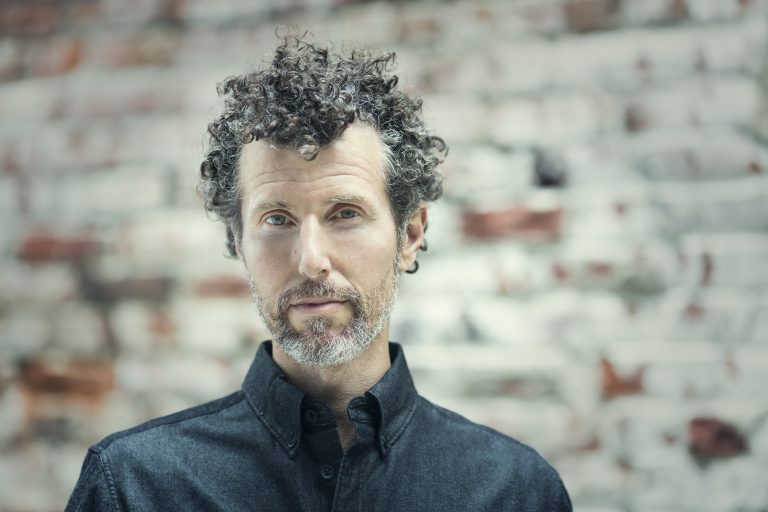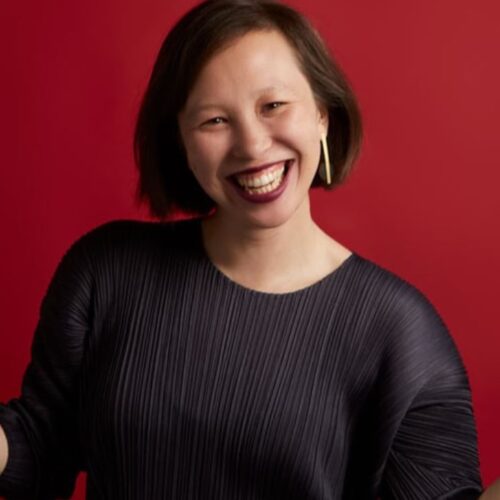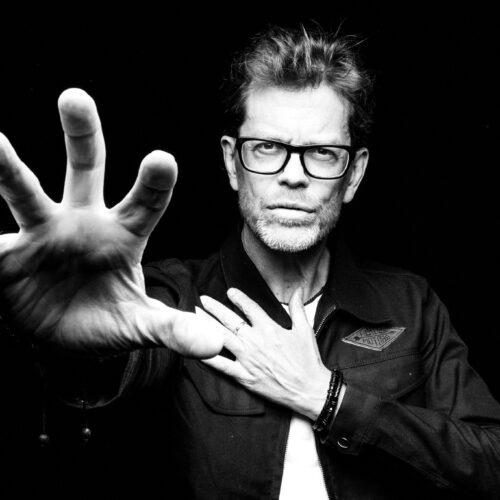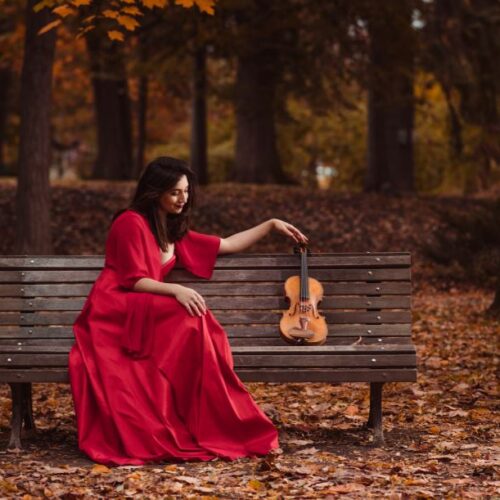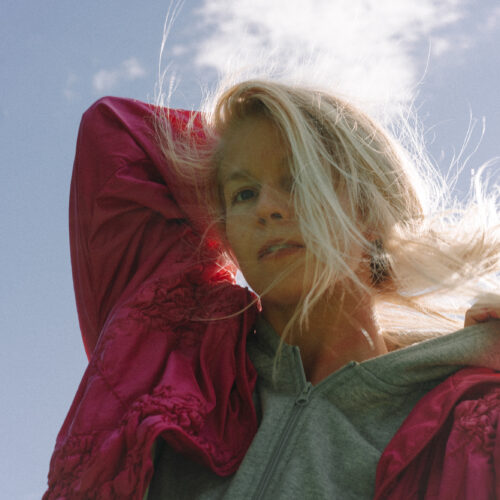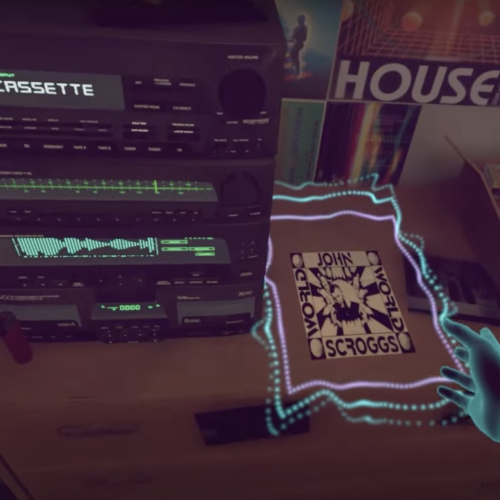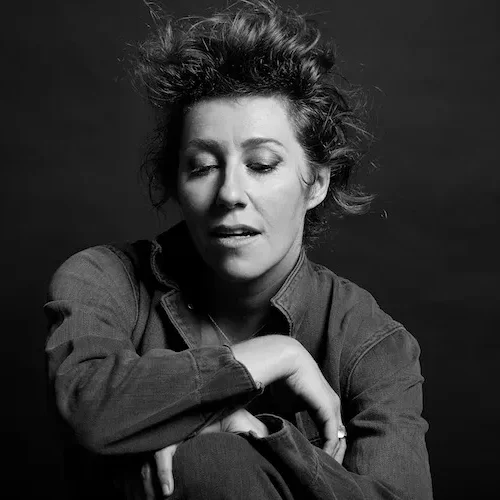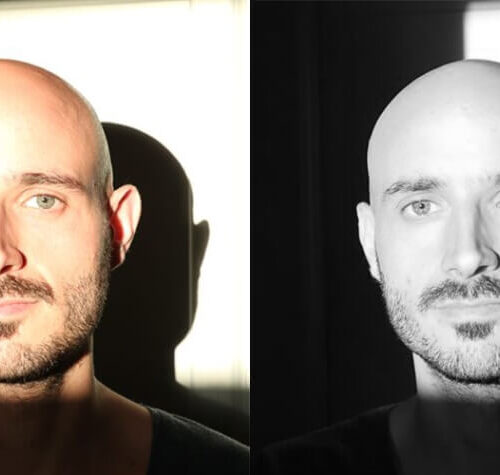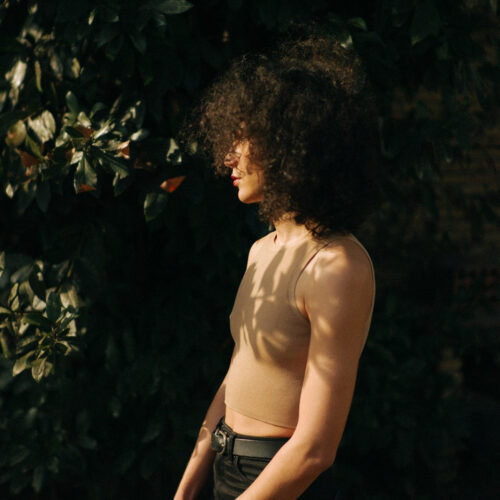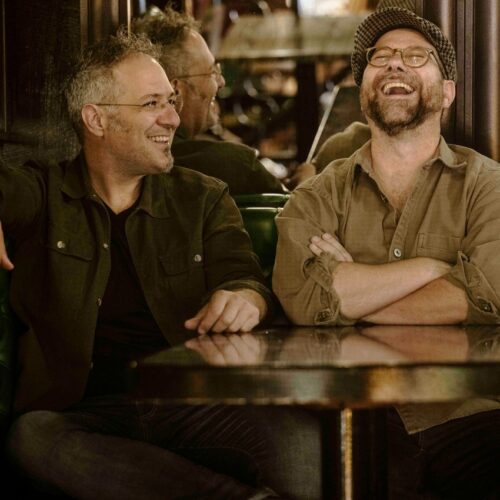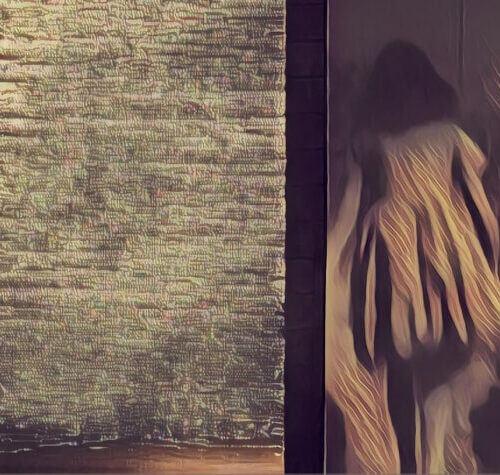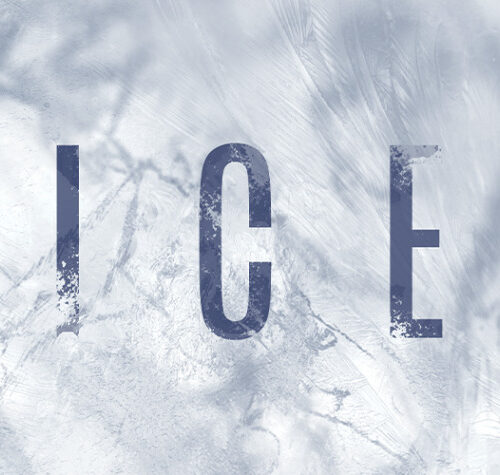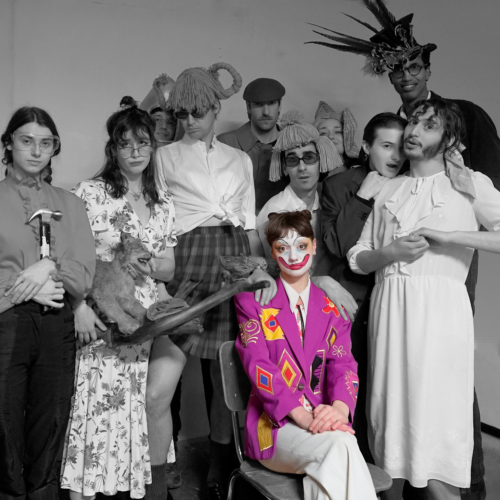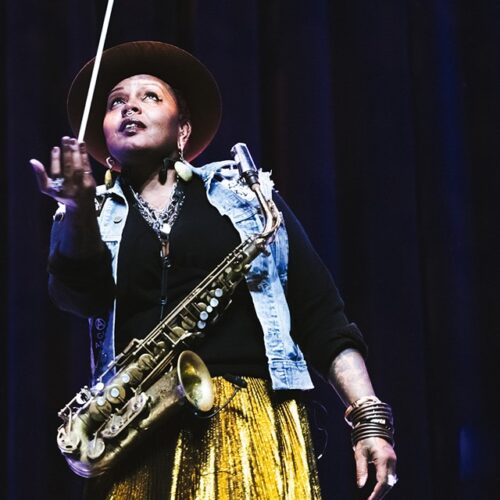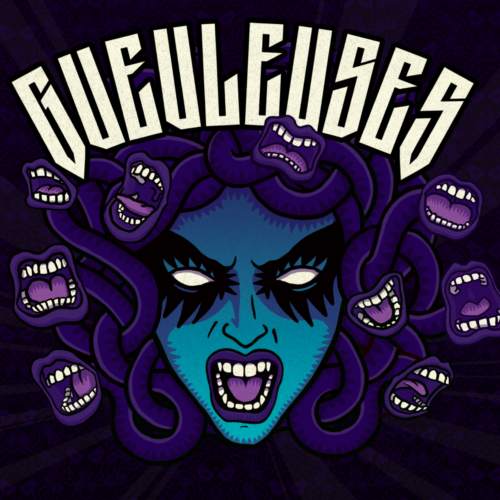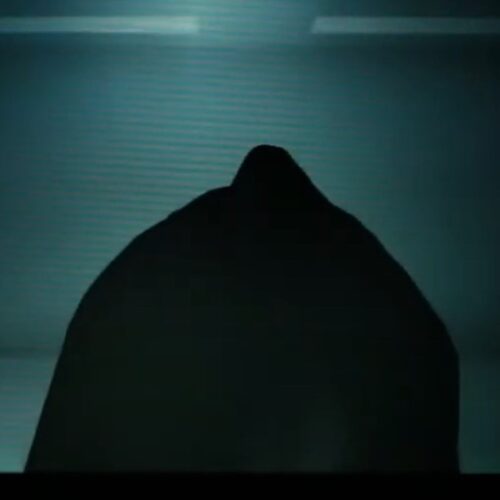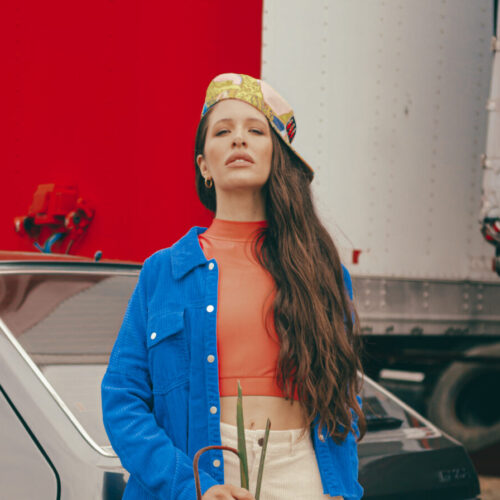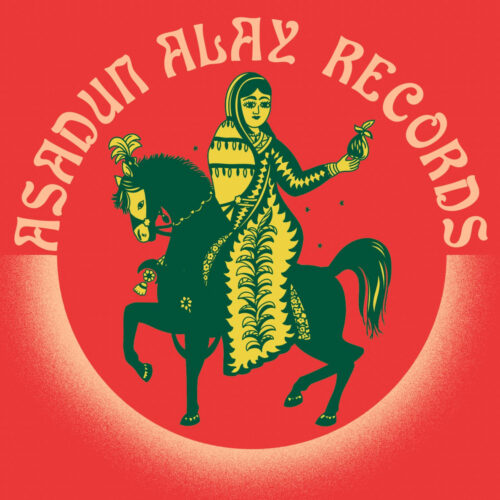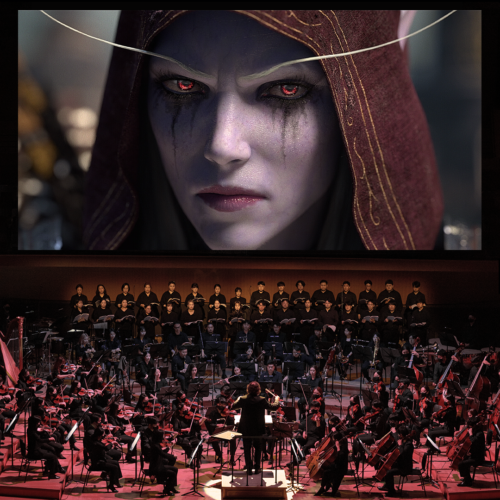Additional Information
Do we really need to introduce Josh Wink anymore? Producer, renowned DJ and co-founder of Ovum Recordings, Wink is one of those who helped establish the North American rave scene of the early 1990s. His label will celebrate its 30th anniversary in 2024. The secret to his career longevity? A never-ending love for musical discoveries and an ever-renewed pleasure in playing to enthusiastic crowds. To celebrate his fourth visit to Igloofest, PAN M 360 met him for an exclusive interview, starting from his teenage years all the way to the future of electronic music scene.
PANM 360 : You were born in Philadelphia in 1970, when disco was big and popular. “Philadelphia soul”, the “Philly sound” had a big impact on music internationally. Was the Philadelphia Soul sound a part of your music education and did it play a role in building or developing your taste for electronic music later on?
Josh Wink : Before 10 years old, even so, I was not so much into the disco sound. I was kind of influenced by things that my family brought to me. My father was heavily into classical music, Bach, Beethoven, things like that. My mother was into kind of world music and my brother was more into like rock’n’roll, Arlo Guthrie, David Bowie, Grateful Dead. He turned me on to Kraftwerk which changed my life. I didn’t really get involved in more musical knowledge up until I was in my early teenage years when I wanted to be a radio DJ. When I started with being a mobile DJ, doing weddings and bar mitzvahs and things like this, I started becoming more inquisitive and curious about different kinds of music, especially a music that came out of Philadelphia.The music appreciation for disco and soul from Philadelphia came when I became a little bit more of a seasoned teenager that was open to all different kinds of music.
I kind of got involved in, you know, the Philly International sound of Billy Paul, Archie Bell & the Drells, Dexter Wansel, Harold Melvin & The Blue Notes, Leon Huff, Lou Rawls, Patti LaBelle, MFSB, Teddy Pendergrass… all the the Philly people. We were always in the shadow of New York and Detroit, musically. New York was more famous for disco music than where it came from, like Philadelphia, where the strings were recorded by a guy named Larry Gold. Even people like David Bowie came here to do strings because of the disco sound. You know, the Vince Montana, the Larry Gold string sound that came out of Philadelphia and that the world took on from there. But we would get lost in the shadow of New York because it was so big and it was where Studio 54 and all these other clubs were. And we are also in the shadow of Motown of Detroit. Philly International was so important for the world, but also important for Philadelphia.
PAN M 360 : We often associate cities with signature sounds. In the 1990’s you started travelling to DJ, what can you tell me about the influences of East Coast cities’ music on your evolution ?
Josh Wink : I grew up in Philadelphia and started deejaying as a young teenager, 13, 14, 15 years old and I would go to block parties and hear Jazzy Jeff and Cash Money do the whole transformation of making hip-hop and turntablism into a worldwide phenomenon, based in Philadelphia. Once again, we were in the shadow of New York, even when it came to hip hop, even though we had a big scene in Philadelphia. First, it affected Philadelphia and New York, and then even DC had the go-go sound. So that was the first aspect of being influenced for me, and I would say hip hop music is in really regard as electronic music, even though originally it started with electronics, taking two records and the break of the records and mixing them together and extending the break, and then emcees on it, or using drum machines and samplers to make hip hop music. But this was a very important thing for the the East Coast. Now with electronic music dance music, New York was known for disco and house, Detroit isn’t known as it’s not an East Coast city, so that wouldn’t be part of it, even though it was very important with the birthplace of techno music. During the rave days there was not necessarily a signature sound. I mean there was a sound coming out of Baltimore which I’m just blanking on it right now. There was a New Jersey house sound that started at Zanzibar with Tony Humphries and that was a big and important. Philadelphia had disco, but it wasn’t really known for house, een though house music came from disco and R&B.
PAN M 360 : What about Montreal, do you remember the first time you came here ?
Josh Wink : I’m not 100% sure, but I think I came to Toronto before Montreal, in 1991 or 92. There was a party called Sweet Harmony or something like that, it was in the early rave days. I used to come up to play in Montreal in Toronto quite a bit during the early 90s and mid 90s and I always loved it. I mean, Montreal is one of my favorite cities in North America. It’s like a little Europe that’s not so far away. I was very fortunate to have been part of the early rave days and early club scene in Montreal and Toronto. I remember playing with a friend of mine who was a just a rave DJ by the name of Tiga, which who you probably know of, and I became friends with him. He would use to come out and hear me play and then I ended up playing a couple of small gigs with him just for the fun of it, just to hang out with him, I think at a club called Angel.
PAN M 360 : How would you describe your relationship with Montreal ?
Josh Wink : As I said there was this like European feeling in a North American city and I love the openness that separated itself from any other city in Canada, let alone in North America as well. I used to like to come and play parties, and then go to the after party on and I used to go straight from the the rave or the nightclub to the Tam-tams on Mont-Royal, to be surrounded by people and like-minded music enthusiasts, just drumming early morning on Sunday morning. That was always something that was just so special to me. I always said that if Montreal wasn’t located in Montreal, I’d move there, meaning if it wasn’t so cold all the time, I would love to say I live in Montreal. But as I get older, I get more sensitive to the cold weather and I want to move even out of Philadelphia and get someplace warm.
PAN M 360 : Friday night you play at Igloofest, marking your 4th participation to this festival. Is there anything special about this event that makes you happy to come back every time ?
Josh Wink : It’s always been a highlight for me to come and play this festival. It’s very unique just because of its place, its setting. You know, it’s one of the only ones in the world that does something like this that’s outside, in the winter time, where you guys are just enjoying and living life in the cold, in the snow, in the rain, and under the elements with a world variety of musicians to entertain you. I’ve always had such a great time when I’ve come and played for the festival. I checked the weather yesterday and I saw that it’s supposed to be snowing tomorrow too. It’s even more special when it snows during Igloofest !
PAN M 360 : You are a DJ, a producer and you also cofounded your own label back in 1994, Ovum Recordings, and it’s still pretty active. Music industry changed a lot in the last 30 years, what are the biggest challenges you face today as a label manager?
Josh Wink : The biggest part of the problem I find with music lately is just the fact that there’s so much content out there now. It’s a great thing because I love music and I love artists and I love being introduced to new sounds and new things. But it’s just so difficult to be able to find things and then how do you support them? We’ve been releasing music for a long time and we still try to keep our sound to be relevant without compromising our integrity and putting out music that we don’t want to just because everybody else is doing it. We have lots of different artists that we’re still putting out, we put out one to two records, we still press up vinyl on certain releases. A big part of what we do is that we take pride in just releasing the music that we want. That’s a part of our lives without compromising our integrity. We’re not saying we’re not opened to change but just because the trend is making fast techno doesn’t mean that we’re going to do the same thing. Sometimes it’s a good thing, sometimes it’s not. Now, every year comes around and we don’t make money and you know; we just keep on pushing on and pushing on and it’s very frustrating. But we keep doing it and it’s been almost 30 years, so it’s been amazing to see everything change and progress regardless of the record label, but to the music industry itself.
PAN M 360 : You say the biggest challenge is the amount of content available, and streaming platforms, those enormous dematerialized music libraries, are a good example. What are your favorites channels to discover music ?
Josh Wink : I do a lot of discovering. I listen to the BBC. They have an application called BBC Sounds and it has all the BBC in England’s radio stations available for you for live streaming and or going back and checking out the shows that are curated and kept for a month in the cloud storage. In the mornings when I get my sons breakfast I get up at around 5:45 in the morning and I listen to a DJ named Mary Anne Hobbs. I love getting turned on to the music that these shows present. I love this feeling. I’m happy it hasn’t left my conscious after being involved in music for so many years. I also listen to NTS, Radio Nova or Open Lab FM.
PAN M 360 : Your answer really highlights the importance of curation and the importance of curators in the process of discovering new music. It can be the radio, music critics (journalism), or even algorithm nowadays.
Josh Wink : I think it’s such an important thing to have someone like a building curator, which is a filter. It’s like having a personal shopper or the guy who the girl who works behind the desk at the at the record shop where you go buy yours. They know what you like and when you come in, they’ll give you a handful of records and say “here you go, you may want yo check these out, because I know what your tastes are”. There’s an AI alternative, those algorithms that are made-up so that when you use Spotify or Apple music, it will link your music to the similar things and I think this is a neat thing, but it’s nice to have a human quality to it as well, rather than just a computer program.
PAN M 360 : When you talk about the struggles of putting out music today, I feel the dominant business model in the music industry is not sustainable for independent artists. Do you think community-based initiatives like crowdfunding, subscription-based crowdfunding, or project like Aslice launched by DVS1 can be a way to find solutions for the future of electronic music scene?
Josh Wink : I don’t know. I mean, it’s a good way to think about it. I think there’s a lot of people that want to help out and support and they do that by going out and buying tickets to events where artists that they appreciate are playing. What Zack (DVS1) is doing is a great thing, he is trying to help the small person get a slice of royalties that is collected on something that they don’t get collection on. It’s nice to say that we have a community that’s support of our community. It’s a shame that it’s relying on the community to fund certain things, but if we have such a community that looks out for itself it’s because it’s a very unique one. I mean, it’s a bigger community than it ever used to be. Before it used to be a very small underground community where you would only know about it by going to the record shops or the small nightclubs. Now it’s available on any kind of Internet platform or radio or TV or festival. There’s a lot of people that go to festivals that don’t know anything about electronic music that just go because it’s a fun thing to do but hopefully they’ll learn about this kind of music and support it a little bit more. I know there’s a couple other record labels that go on subscription basis, we haven’t gone that route yet, but you know, maybe it’s something to look forward to, and it’s nice to hear that you’re bringing it up as well in this interview.
